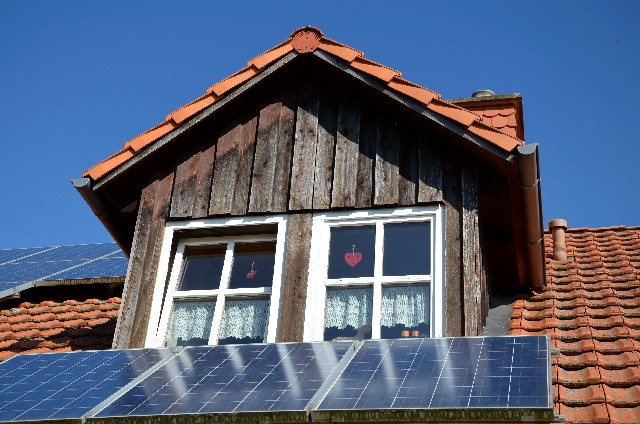The world is turning into a more environmentally-conscious place, and the trend of switching to solar energy to power businesses and homes is on the rise. The financial benefits of solar energy are becoming increasingly clear as more consider making the switch. Whether it’s for commercial or residential applications, there are many ways in which one can save money with solar energy. This article will explore some of these financial benefits so readers can make an informed decision when considering switching to solar energy.
Cost Savings: Lowering Utility Bills
The financial benefits of solar energy are becoming increasingly popular, as homeowners and businesses alike are looking for ways to save on their utility bills. With the rising cost of electricity, and the environmental advantages that renewable energy brings, installing a solar system is an attractive option for many.
Solar power can be utilized in both residential and commercial settings to reduce energy costs. It is estimated that solar could lower utility bills by up to 90%, depending on how much of your total energy needs you meet with it. Additionally, as technology advances, this cost savings potential continues to increase. In addition to reducing your electric bill, there are other financial incentives associated with solar installation such as tax credits and rebates from local programs that may be available in some areas. Using the sun’s free and abundant energy has clear financial advantages for those who choose to invest in a system.
Tax Incentives: Local and National Rebates
Tax Incentives: Local and National Rebates are financial benefits designed to incentivize the adoption of solar energy solutions. Tax incentives allow individuals and businesses to save money while investing in renewable energy sources such as solar panels. By taking advantage of these tax breaks, people can benefit from reduced electricity bills, improved home values, and a more sustainable environment.
At the national level, homeowners can take a 30% credit on their federal taxes for installing solar power systems. Businesses may also qualify for tax deductions when they purchase equipment for their own use. On the local level, many states offer rebates that help offset the cost of installing solar panels or other renewable energy sources. These incentives vary from state to state but typically include sales tax exemptions and property tax credits that reduce upfront installation costs substantially.
ROI: Short and Long-Term Returns
Solar energy has been gaining traction over the last few years, with more people recognizing the financial benefits of investing in solar energy. Solar energy is a renewable resource which means that you are able to generate clean and free electricity from sunlight, reducing your reliance on traditional energy sources. Not only does it provide an unlimited supply of energy, but with the right investments, you can also reap significant returns on your investment over time.
Investing in solar energy provides both short-term and long-term returns for businesses and homeowners alike. In the short term, installing solar panels can lower monthly bills by reducing or eliminating utility costs. This immediately saves money and helps to offset the cost of installation while providing clean power.
Investment Opportunities: Profiting from Solar
The financial benefits of solar energy are an attractive investment opportunity for savvy investors. Solar energy is becoming increasingly popular, and investments in the industry have become more accessible than ever. Investing in solar technology can be a great way to secure a reliable return on capital, as it offers both short-term and long-term gains for investors.
Solar energy has grown rapidly over the past decade, driven by diminishing costs, making it more accessible than ever before. Investing in renewable energy sources can bring a steady stream of income over time and generate returns from the sale of surplus electricity back to the grid or customers through fixed or floating-rate contracts. In addition, an investor could benefit from tax incentives such as rebates and credits offered by governments across the globe to incentivize the development of renewable energies like solar power.
Home Value Increase: Appraisal Impact

Home value increase is an important consideration for homeowners looking to invest in solar energy. Solar energy systems have a wide range of benefits, from reducing monthly utility costs to reducing environmental impact. However, many homeowners are interested in the direct financial benefit of how solar can impact their home appraisal value.
A home appraisal is when a real estate professional evaluates the current market value of your house, and it’s an important part of any home sale transaction. Appraisals are notoriously difficult to predict because they are based on current market trends and local comparables rather than individual property features or renovations. Fortunately, installing a solar power system has been proven to boost a home’s appraised value in many areas across the country. Studies have shown that homes with solar power systems typically sell for more than comparable properties without them.
Environmental Impact: Cleaner Air, Water & Land
Solar energy is an affordable, renewable resource that can create large-scale environmental transformations in the form of cleaner air, water, and land. It has been proven to reduce carbon dioxide emissions significantly, helping to reduce global warming.
Solar energy is also far more cost-effective than other forms of clean energy like wind or geothermal power. Solar panels require very little maintenance and installation costs compared to other traditional sources of electricity. This results in a much lower electricity bill for those who choose the solar route – making it a sound economic decision for both individuals and businesses alike. In addition, solar-generated energy helps protect local wildlife habitats by reducing pollution from emissions that contaminate water sources, leading to healthier ecosystems and improved biodiversity.
Conclusion
In conclusion, the financial benefits of switching to solar energy are clear. Not only does it help homeowners and businesses save money on their energy bills, but it also helps them reduce their carbon footprints in a meaningful way. Solar energy has become increasingly affordable and accessible in recent years due to the availability of tax credits, grants, and other incentives. However, the decision to make the switch should always be based on an individual’s specific needs and preferences.




